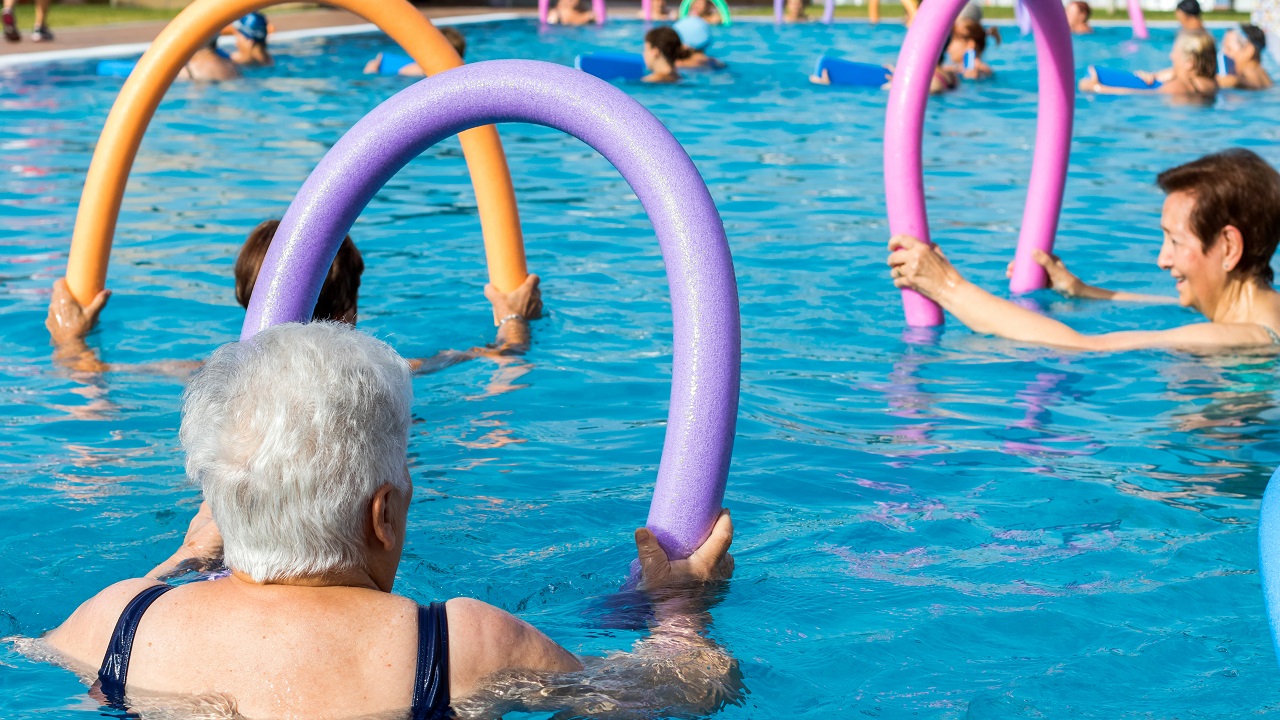Many consider urinary incontinence to be one of the inevitable nuisances of aging, and the process certainly does play a role. According to a Centers for Disease Control and Prevention (CDC) report, more than half of Americans over 65 experience some form of incontinence (either urinary or bowel).
A person’s risk of developing an overactive bladder increases with age. This is especially true for post-menopausal women, since the drop in estrogen levels that accompanies menopause contributes to tissue degeneration in the urethra and bladder. The long list of potential incontinence causes includes diabetes, stroke, neurological conditions, cancer, poor diet, urinary tract infections (UTIs), pregnancy and childbirth, constipation, prostate conditions and bladder stones. Learn more about different types of urinary incontinence and discover strategies to treat and cure incontinence.
Incontinence can be especially frustrating during the summer months, when most activities and events are held outdoors and the warmer weather calls for fewer and smaller articles of clothing. Answering the unexpected call of Mother Nature while spending time in nature can be a challenge, and wearing incontinence products underneath a bathing suit or a pair of shorts is a tricky endeavor. Fortunately, there are steps you can take to ensure these conditions don’t interfere with summer plans.
Tips for Managing Incontinence During the Summer
Scout Restroom Locations
Whether you’re planning a day at the park or embarking on a weeklong vacation, identify places to take regular pit stops. Scheduling bathroom breaks every two to four hours can help avoid accidents. If you aren’t familiar with the area, there are new tools that can help you find the nearest toilet. The aptly named “SitOrSquat” is a free smartphone application created by Charmin that enables users to search for suitable public restrooms in their area. You can filter out facilities by cleanliness (past users say whether they were able to “sit” on a clean toilet or if they were forced to “squat” over a dirty one), handicap accessibility, and whether you have to pay to go.
Stay Away from Smoke
Smoking directly contributes to an overactive bladder, but simply being near second-hand smoke can also exacerbate incontinence symptoms by triggering coughing and sneezing.
Stick to a Healthy Diet
Overweight individuals are more likely to experience problems with incontinence, so eating a balanced diet and engaging in regular exercise are two essentials for keeping the condition at bay. Fiber is especially important for preventing constipation, which can exacerbate both urinary incontinence and bowel incontinence. Things like spicy ingredients and artificial sweeteners can irritate the bladder and digestive system, too. Make a point of avoiding problematic foods and beverages to prevent discomfort and accidents.
Read: Dietary Do’s and Don’ts to Keep an Overactive Bladder Happy
Hydrate Wisely
Staying properly hydrated is actually a key component of preventing incontinence, and drinking enough water is especially important while spending time outside in warmer weather. However, some beverages are better left untouched, such as alcohol, coffee and tea, which can all irritate the bladder. Water is the ideal drink. For consistent hydration that won’t overwhelm the body, opt for frequent sips instead of downing a full cup at a time.
Read: Hydration Tips for Seniors
Find the Right Incontinence Product
There is a wide variety of products available for people living with incontinence who still want to wear shorts or go for a swim on a warm, sunny day. However, finding a product with the right fit, function and profile requires a bit of trial and error. Be sure not use traditional briefs or pads for swimming, since they will absorb water and are likely to leak waste. Instead, look for a waterproof adult swim brief or a specialized bathing suit that can contain accidents in the water. Browse this list of incontinence products to explore some of the available options.
Read: How to Choose the Best Adult Diaper
Always Be Prepared
Planning ahead for an accident can alleviate anxiety and allow for a more stress-free outing. Make sure to pack pads, briefs, wet wipes, extra clothes and shoes, and an opaque plastic bag or two for discreetly containing soiled items to address any unforeseen incontinence episodes.
